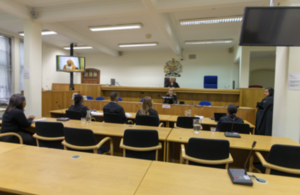New Geospatial Commission Director appointed
Following an open competition John Manzoni, the Chief Executive of the Civil Service and Permanent Secretary, has today announced that Thalia Baldwin will be appointed as the new Director of the Geospatial Commission from 1 August 2019. Thalia is currently Deputy Director for Policy at the Geospatial Commission. She was previously Head of Digital Policy at HM Treasury, where she was responsible for the approach to public spending on digital technology and infrastructure.
Sir Andrew Dilnot, Chair of the Geospatial Commission, said
I am delighted to welcome Thalia to this role. The intelligent use of data presents a huge opportunity to enrich our society, strengthen our economy and tackle the issues of the future. The potential of new technology in the geospatial domain is huge, and questions about how best to facilitate the use of data are important and fascinating. I look forward to working with Thalia to address these questions.
John Manzoni paid tribute to the outgoing Director of the Geospatial Commission, William Priest:
Under William’s leadership the Commission has established a strong team of functional expertise, delivered the first outputs to unlock an estimated £11bn of economic value and begun to assemble the evidence it needs to develop a long term geospatial strategy for the UK. I would like to thank William for the energetic and dynamic approach he has taken to setting up the Commission from scratch and forming the basis for a significant new national capability.
